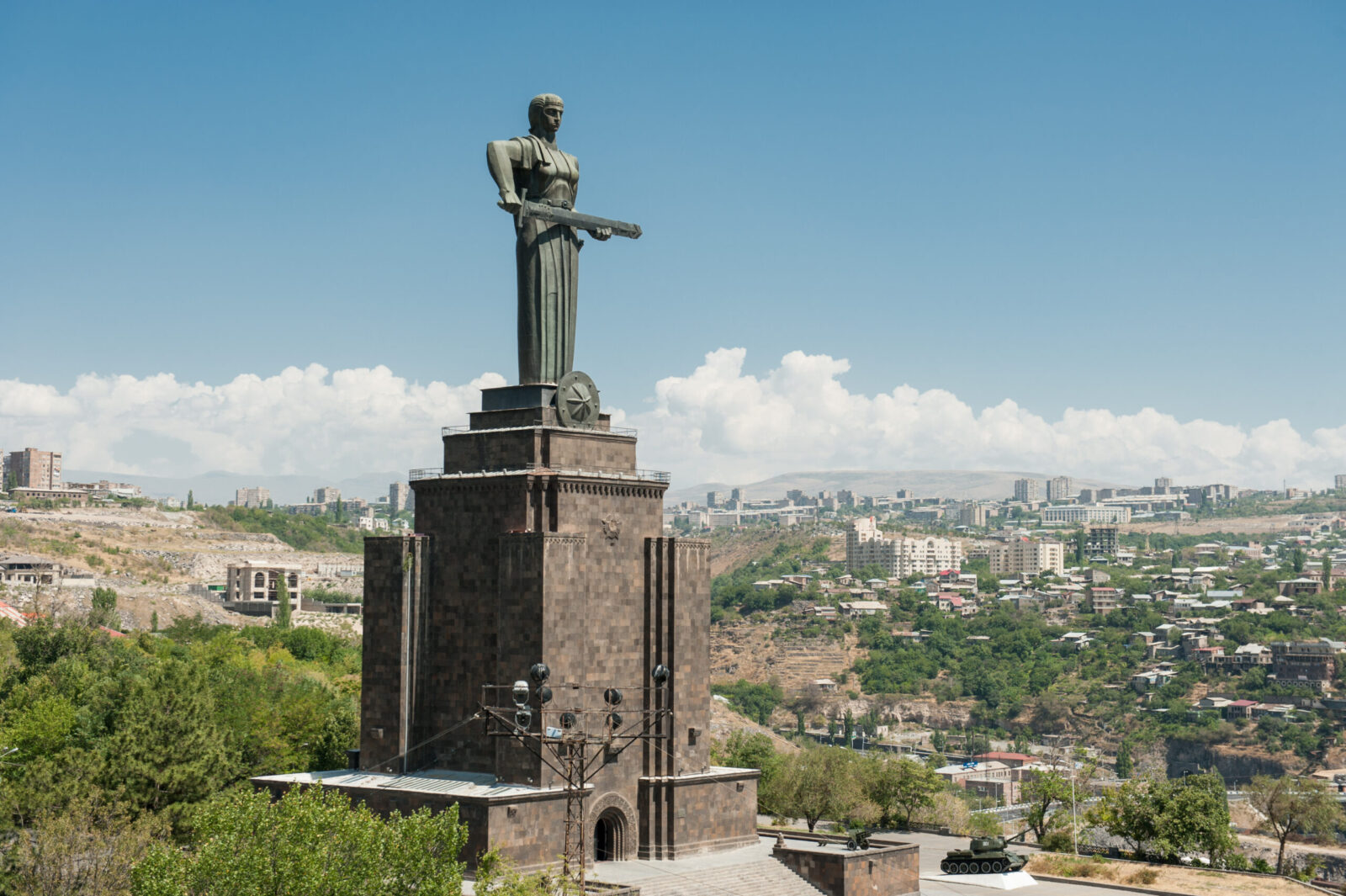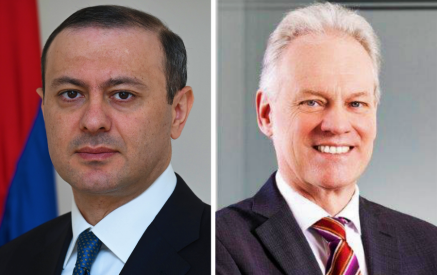Yerevan’s close security links with the Kremlin have encouraged beliefs that the country simply follows orders from Moscow. However, Armenia’s diverse experiences related to the ongoing war in Ukraine show that this could not be further from the truth.
Read also
Russia’s large-scale attack on Ukraine exacerbated Armenia’s ongoing security predicament. Armenian policymakers came under additional pressure to not provoke Russia into hostile action, as Yerevan fears being dragged into the war under the pretext of “peacekeeping”. It is also wary of the potential international isolation it could face in such circumstances. The lack of support for Russia’s actions is resulting in considerable political pressure from Moscow.
Simultaneously, the parliamentary opposition and other groups have recently been advocating for membership in the Russia-Belarus Union State and promoting various pro-Russian narratives. The situation is further complicated by the socio-economic threats posed by the current crisis. This has resulted in the need to secure the continuous supply of grain and other staple foods, mainly imported from Russia, and to minimise the negative impact of declining remittances and exports.
Since the first days of the ongoing Russian invasion of Ukraine, Russian propaganda narratives were clearly present in Armenia. The activities of pro-Russia groups were further strengthened by social networks, as users lacking information or critical thinking skills were presented with several propaganda narratives on these platforms. The main narratives largely concerned the idea that the war in Ukraine is a conflict primarily between Russia and the West. Additionally, there were specific narratives that targeted the Armenian public’s sensitivities. For example, they repeated allegations that Ukraine had supplied munitions containing white phosphorus to Azerbaijan shortly before or during the war in Karabakh in 2020. Initially, such allegations had been voiced by Russian “patriotic” film director Sarik Andreassian, who seems to belong to propagandist Margarita Simonian’s close circle.
However, the situation gradually changed towards a more balanced view within two weeks. One factor helpful in overcoming the initial pro-Russian bias of a large segment of the population was coverage by Armenian television and other media. With the exception of some outlets controlled by the aforementioned opposition, these groups presented the war’s events rather accurately. A number of policy experts and civil society organisations have also been trying to explain the situation, particularly the background of the conflict and why Armenia had to abstain rather than support Russia at the UN Human Rights Council and the UN General Assembly. The opinions of refugees from Ukraine influenced the situation as well. The chargé d’affaires of Ukraine in Armenia, Denys Avtonomov, has reported that about 4000 Ukrainian refugees, mostly ethnic Armenians, have arrived in the country. Some people employed in the hospitality and services sector also appeared to change their minds as some Russian clients, who just arrived in Armenia, told them that Moscow was the aggressor.
Russian exodus
In early March, sanctions imposed on Russia, particularly those concerning bank transactions, coincided with rumours about an imminent mass mobilisation and border closures. Some Russian IT companies promptly moved their personnel abroad by charter flights. However, large numbers of Russian citizens also left the country of their own accord. Armenia turned out to be one of the most popular visa-free destinations, along with other Eurasian Economic Union members. Kazakhstan and Kyrgyzstan also allow Russians to enter with their internal passports. People not possessing a passport for international travel subsequently had to choose between these three countries. Georgia and Turkey also have little to no visa requirements for Russians. Many also travelled via Armenia to Georgia, as there are no direct flights between Georgia and Russia. Despite the increased number of flights in early March, ticket prices grew sharply. While single tickets from Moscow to Yerevan booked in advance used to cost less than 100 euros, at some point the price increased almost tenfold. As a result, some people preferred to travel to Yerevan via Istanbul. There were even panic-driven arrivals via Dubai at prices approaching 2000 euros. Currently, the market has stabilised and tickets are now available for about 150 euros.
By mid-March, it was estimated that some 80,000 to 85,000 people from Russia had entered the country over two weeks. While many travelled onwards to Georgia or elsewhere, it appears that many arrivals are ethnic Armenians, with some possessing dual citizenship. Todar Baktemir, reporter for the Tatar-Bashkir branch of RFE/RL, estimates that around 30,000 Russians have stayed in Armenia. In any case, the number is large for a country that previously had, besides ethnic Armenians from the Middle East, only a few thousand Iranian and Indian immigrants. The newcomers from Russia already comprise about one per cent of the total population. A new wave is expected in April.
According to the business consulting company Invest in Armenia, 113 Russian companies, as well as a smaller number from Belarus, Kazakhstan, Moldova and Ukraine, relocated to the country within two weeks of the invasion. The IT sector has been thriving in Armenia for several years and start-ups are exempted from corporate tax. Start-ups in other sectors and private entrepreneurs also get preferential treatment. While IT specialists can be employed easily, the number of new immigrants with other skills is large too. The prospects for them are currently less clear. The potential multiplier effect of increased demand in the service sector has also not yet been evaluated by economists.
However, this wave of immigration from Russia has had a negative effect on a number of students and less affluent citizens. A sharp growth in rental prices has made rents unaffordable for many. Some also now face eviction by property owners, as in many cases only verbal agreements had been made previously. The increase in demand for housing is also visible in the outskirts of Yerevan and smaller towns, which before had not attracted foreigners apart from ethnic Armenians.
The majority of the newcomers avoid showing obvious political preferences and just make general statements about wishing for peace. Some simply seek a degree of personal comfort or want to avoid possible conscription. Yet, quite a few openly express their critical opinions regarding the Russian leadership and its policies. This includes Victor Muchnik, editor-in-chief of TV2 Tomsk, a channel that was shut down for using the term “war” rather than “special military operation” as required by the Russian authorities. According to Baktemir, the number of journalists and activists present in the country is quite considerable. Some former political prisoners have also moved to Armenia. Novaya gazeta has reported that the Kovcheg (“Arc”) project backed by Mikhail Khodorkovsky, Garry Kasparov and some other known émigrés has already rented a building with a conference hall. This group plans to hold cultural events and other gatherings.
At the same time, many of the newcomers are now obtaining tax and social security numbers, registering businesses and seeking jobs and school placements for children. Some have already been showing interest in integration and seeking available language courses or language exchange opportunities. Despite this, the issue of integration remains delicate. Baktemir bitterly observes that some show colonialist attitudes and cultural insensitivity, as they complain about the lack of signs in Russian, reprimand waiters who cannot speak Russian very well, or cry “Russophobia” when bank tellers cannot exchange their desired amount of rubles. He notes that such attitudes are potentially harmful for Armenian society and immigrants who genuinely wish to integrate.
Security dilemmas
To wrap up, it may be useful to review some regional security issues in a wider context. The Armenian government’s risk assessment and ensuing policies have been influenced by many imperfections, including subjective understandings of regime survival. This is exemplified by the country’s overnight decision to join the Eurasian Economic Union instead of signing an association agreement with the EU in 2013. However, the idea that Armenia is simply Russia’s puppet is also faulty and it distorts the wider picture as well.
It may be remembered that back in 2013 many policymakers and experts in the EU and Eastern Partnership countries thought that Armenia’s U-turn was inevitable. This decision was viewed as being somehow “deserved” by the country for being so dependent on Russia. However, this group remained optimistic about the EU association prospects for other countries, as they thought Vladimir Putin would already be satisfied with his gains. It was subsequently rather predictable that the regional situation would deteriorate in early 2014 after the Sochi Olympics – one of Putin’s pet projects. Armenia was rather the weakest link, or a canary in the coal mine, but Putin’s plans reached much further in the region.
Regarding today’s situation, Professor Vakhtang Maisaia has pointed out the growing possibility that Russia may try to annex Georgia’s breakaway regions. This could be followed by an offensive operation against the rest of the country. It is safe to assume that the chances of such ideas actually coming true would increase if Armenia is forced to join the Union State or support Russia militarily. Russia’s operational capabilities in the South Caucasus would naturally grow at the expense of Georgia.
Overall, it seems that many issues are currently influencing Armenia’s approach to Russia. This is exemplified by the true intentions of Azerbaijan’s government, which has cut the natural gas supply to the Armenian population of Nagorno-Karabakh during severe weather conditions. Baku has also taken over villages and strategic heights while Russian “peacekeepers” turn a blind eye. In this setting, the prejudiced idea that Armenia is simply Russia’s puppet may once again distort the wider picture regarding the country’s outlook.
Armen Grigoryan is co-founder and vice president of the Yerevan-based Centre for Policy Studies, and a member of the advisory board of the project Resilience in the South Caucasus: Prospects and Challenges of a New EU Foreign Policy Concept, implemented by the Institute of Slavic Languages and Caucasus Studies, University of Jena.






















































